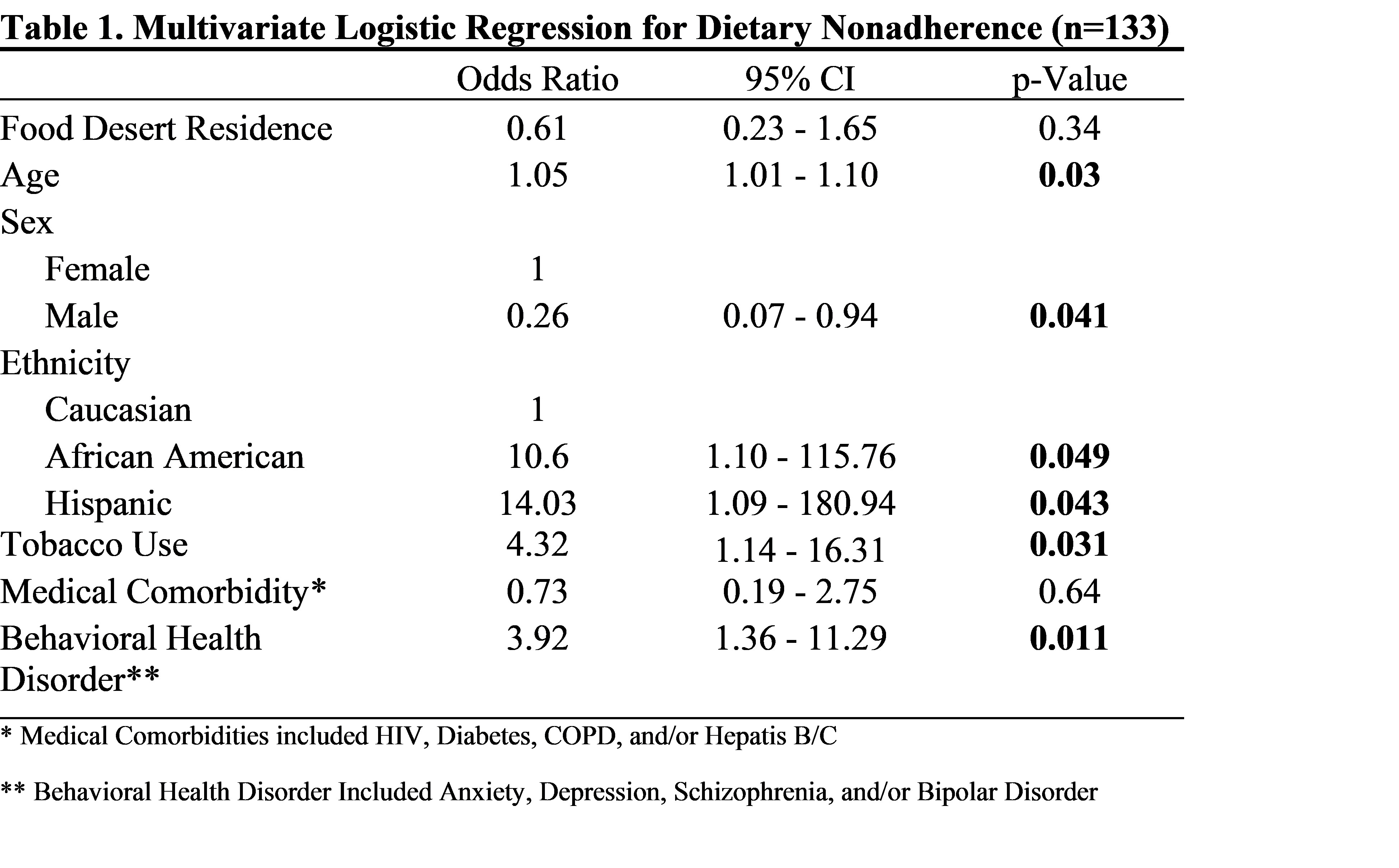Food Desert Residence is Not Associated with Dietary Adherence or Complication Rates in Patients with Isolated Mandibular Fractures
Aron Egelko1, Dylan Kahler*1, Rebecca Gardella3, Sai Reddy3, Brienne Donovan1, Christine Jones2
1Surgery, Temple University Hopsital, Philadelphia, PA; 2Plastic and Reconstructive Surgery, Temple University Hospital, Philadelphia, PA; 3Lewis Katz School of Medicine at Temple University, Philadelphia, PA
Management of mandible fractures often involves a postoperative soft diet to promote healing and avoid complications. Over 20 million Americans live in "Food Deserts,"� corresponding to low-income neighborhoods over one mile from a grocery store. The relationship between food desert residence (FDR) and adherence to specific dietary instructions has not been previously studied. This study evaluated the relationship between FDR, dietary adherence, and complications among patients with isolated mandible fractures.
This was a single-center retrospective study of all patients presenting with isolated mandible fractures between January 2015 and December 2020. Patient addresses were converted to census tract GeoIDs. FDR was determined using GeoIDs and the USDA Food Access Research Atlas. Dietary adherence and complications were abstracted from patient charts. Univariate and multivariate (incorporating age, sex, mechanism of injury, comorbidities, and surgical service) regression models were generated.
296 patients with mandible fractures were identified; 143 had adequate address and adherence data for analysis. There were 51 patients (35.7%) with FDR and 30 (21.0%) with dietary nonadherence. FDR was not associated with dietary nonadherence, with an odds ratio of 0.89 (95% CI 0.38-2.1; p=0.76). In univariate and multivariate regression, FDR was not significantly associated with complications (p=0.74 and 0.25, respectively). On multivariate regression, dietary nonadherence was associated with increased odds of experiencing a complication, with an OR 2.85 (95% CI 1.01-8.09, p=0.049).
Residence in a food desert was not associated with dietary nonadherence or complications in patients with isolated mandible fractures. However, dietary nonadherence was strongly associated with complications. Therefore, dietary compliance cannot be reduced to a question of access in these patients. Further research is needed to elucidate the causes of dietary nonadherence to develop strategies for compliance promotion and complication prevention.
Back to 2023 Abstracts


